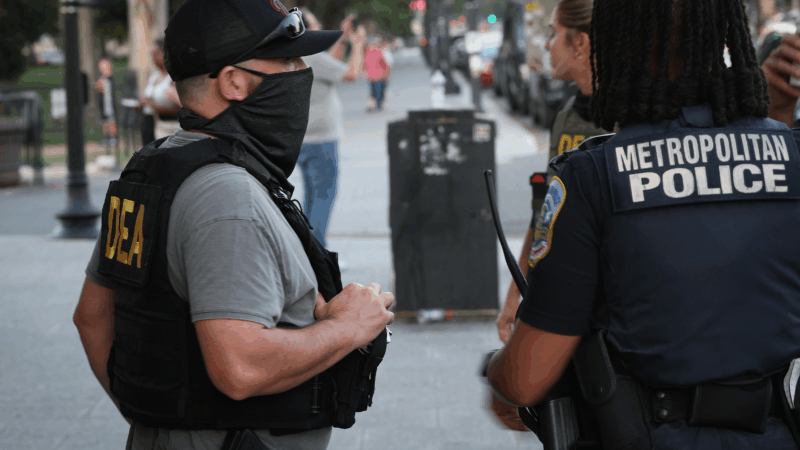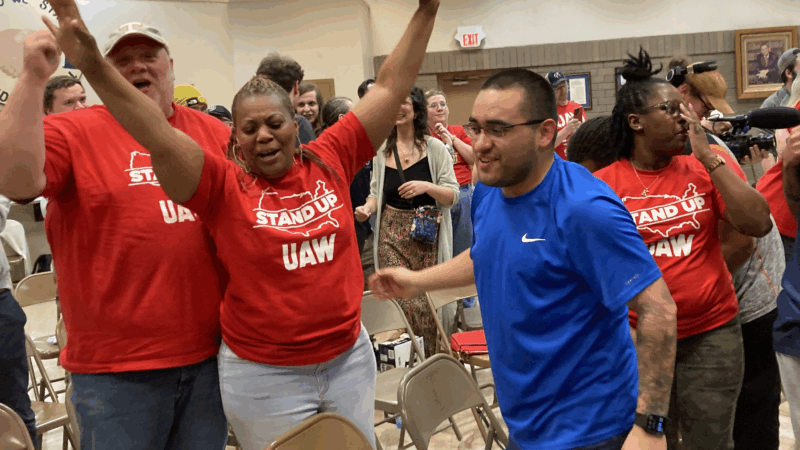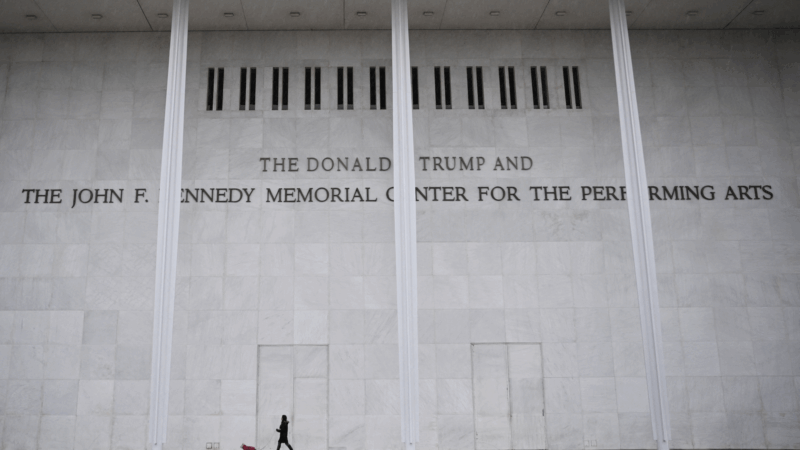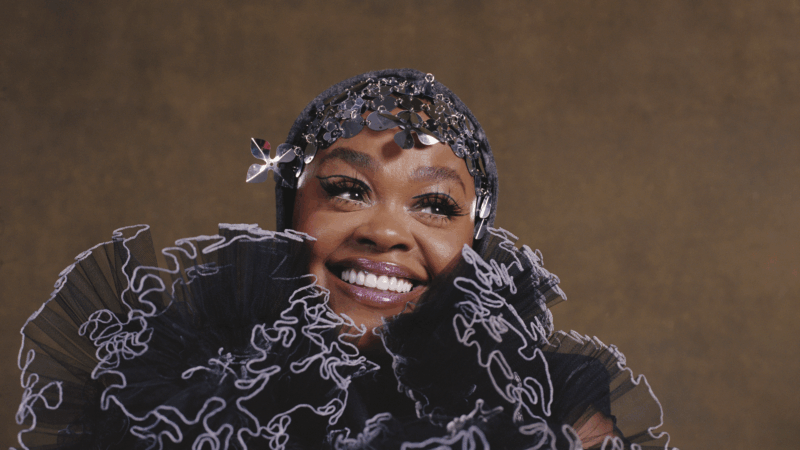Trump’s Washington, D.C., takeover targets a host of groups, many of them vulnerable
President Trump said Monday he’ll use the National Guard and Metro police to target criminals in Washington, D.C., but criminals aren’t his only targets. Trump also called for a purge of poor people and people without housing from the nation’s capital. Much of his toughest rhetoric was aimed at young people.
Trump has frequently used harsh language to describe immigrants living in the U.S. without legal status. During a press conference at the White House on Monday, he used similar rhetoric to describe Americans he accused of destroying the nation’s capital.
“Our capital city has been overtaken by violent gangs and bloodthirsty criminals, roving mobs of wild youth, drugged-out maniacs and homeless people,” Trump said.
Violent crime is at a 30-year low, according to Justice Department data, but Trump says he wants those city residents dealt with harshly. Trump said Metro police will operate more aggressively under federal control for at least the next 30 days. Trump said cops will be allowed to do “whatever the hell they want.”
Trump’s primary targets are those he describes as criminals — in this case often teenagers, many of them Black. Washington has struggled at times with violence caused by young men who sometimes ride motorcycles and four-wheelers. Trump spoke about them at length Monday. The city’s Metro police chief, Pamela Smith, was asked about this issue in a separate Monday press conference.
“We want young people to be safe in our city,” she said. “We want them to be able to enjoy the activities of our city but we’re not going to tolerate the kind of criminal activity that we’ve seen in the past.”
Smith says before this week’s federal takeover of Metro police, the city had juvenile curfews in effect in parts of the city that were working.
But some say displacement of vulnerable groups that Trump has lumped in with criminals — homeless people, the mentally ill and people experiencing addiction — isn’t effective. Experts say if the president does as he’s threatened, forcing unhoused people out of Washington away from their families and support networks and health care, it could be devastating. Many in these groups are severely ill.
Will, a man in his 60s, lives in one of Washington’s homeless camps. He asked that NPR use only his first name because he fears authorities will punish him for sleeping on the street in Washington.
“Only thing we ask for is a fair job and fair housing. We can’t get that,” he says. “We stuck out here, we don’t enjoy it. Where we supposed to go?”
That’s a big question Trump hasn’t yet answered. And he spoke Monday not just of purging the homeless from Washington, but of plans to clear out what he described as the city’s slums.
Across Washington, there’s a lot of skepticism that Trump’s approach, using tough police tactics to solve complex social problems, will work.

“Yes, every city has their crimes, their gangs, their homelessness, but I don’t feel like the displacement of those things is going to cause the solution,” says Jehu King, an 18-year-old Howard University student. “I think it’s going to cause more damage.”
Howard student Laila Zachary, 18, says Trump’s effort is intentional.
“I feel like [Trump] is seeking out young people of color because he knows we’re the movement, we want change, and we’re demanding it. He wants to stop us.”
In a historic vote, Tennessee Volkswagen workers get their first union contract
Two years ago, the successful union drive at this plant was expected to spark victories throughout the South. But now, as members vote to make their contract official, momentum has fizzled.
NASA chief blasts Boeing, space agency for failed Starliner astronaut mission
NASA's Jared Isaacman slammed Boeing for failures with its Starliner spacecraft, which was deemed unsafe to return its crew of two astronauts from the International Space Station
Internal memo details cosmetic changes and facility repairs to Kennedy Center
Trump announced his plans to close the Kennedy Center entirely for two years "for Construction, Revitalization, and Complete Rebuilding." The announcement came after many prominent artists canceled existing scheduled appearances.
R&B stars consider two ways to serve an audience
Two albums released the same day — Jill Scott's return from a long absence, and Brent Faiyaz's play for a mid-career pivot — offer opposing visions of artistic advancement in the genre.
Baby chicks link certain sounds with shapes, just like humans do
A surprising new study shows that baby chickens react the same way that humans do when tested for something called the "bouba-kiki effect," which has been linked to the emergence of language.
American Jordan Stolz speedskates to a third Olympic medal — silver this time
U.S. speedskater Jordan Stolz had a lot of hype accompanying him in these Winter Olympic Games. He's now got two gold medals, one silver, with one event to go.








